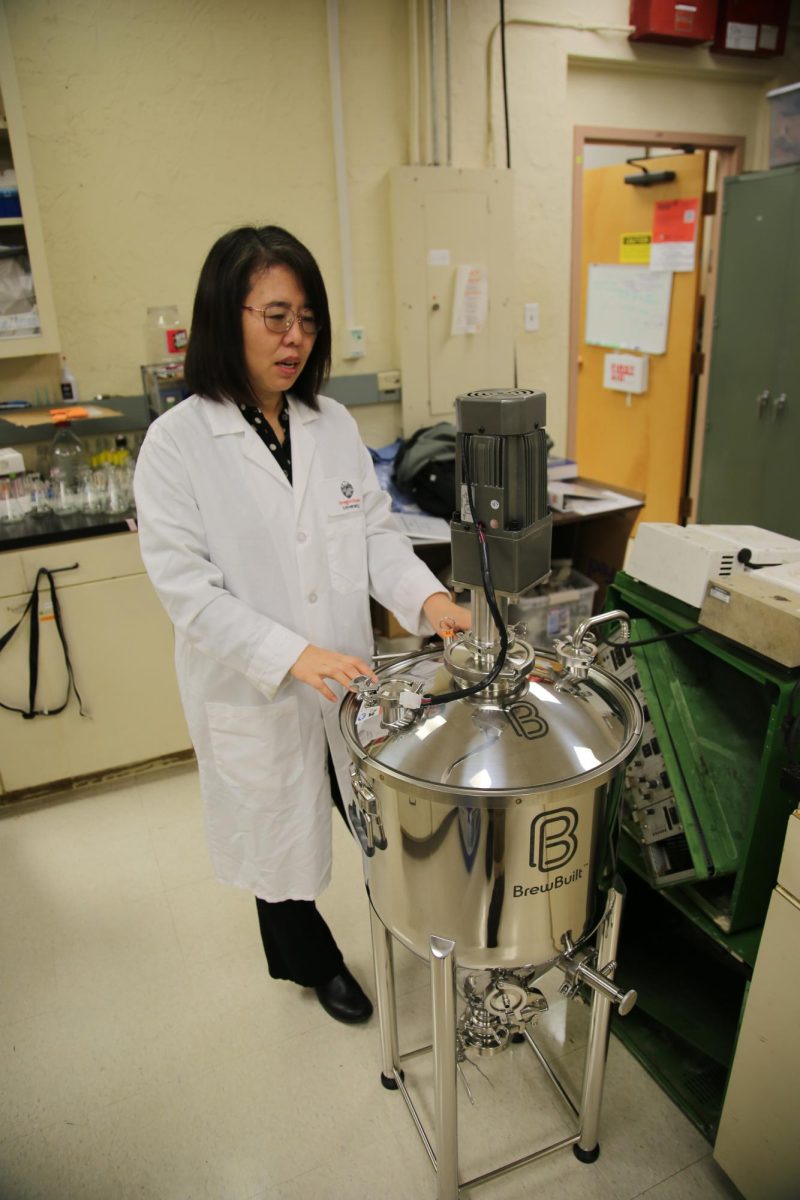While the sun may not shine very often in Corvallis, that doesn’t stop Oregon State University from being one of the homes of Sun Grant research in the United States.
OSU is a hub for many different research ventures, one of which is the Western Region Sun Grant Center, which aims to investigate new and untapped sources of energy.
The Sun Grant Initiative is a nationwide initiative made to link together various research institutions. This is done through five main regional research centers. The five centers are located at Pennsylvania State University, Oklahoma State University, Oregon State University, South Dakota State University and the University of Tennessee.
Each center is given a sum of money that they are responsible for distributing among researchers in their regions. For example, Oregon State University runs the WRSGC, which is currently working with the University of Hawaii, Washington State University, Utah State University and the University of Idaho.
Despite the name, Sun Grant funding doesn’t go to just finding ways to harness the sun, with the grant supporting research across a wide variety of new energy sources.
The primary goal of the grant, according to the United States Department of Agriculture, is to “enhance national energy security through the development, distribution and implementation of biobased energy technologies,” alongside hopes of agricultural production, economic diversification in rural areas and to enhance bioenergy research.
The grant is funded by the government, primarily through the Farm Bill, beginning in 2002. The Farm Bill is required to be updated and renewed every five years, with 2023 being its most recent expiration date. President Biden, on Nov. 16 of last year, extended the bill’s lifespan by signing into law an act to extend the renewal date until Sept. 30 of this year.
According to Shawn Donkin, associate dean of research of the College of Agricultural Sciences, OSU funds around six research proposals each funding cycle of the grant. Additionally, OSU is able to utilize a portion of the funds for more local research.
“There’s a small portion of it that is available to us … to build up our own programs local to OSU,” Donkin said “It’s enough for three assistantships for graduate students.”
With another election cycle coming up this year, the Farm Bill, and by association the Sun Grant’s future, is up to vote. But Donkin believes this grant’s importance isn’t something that should be understated. “Not only does it fund great ideas for biobased energy, but it also in many cases spurs economic development,” Donkin said. “Many of those efforts end up creating new companies, and new processes with companies.”
The research being conducted at OSU is helmed by Professor Hong Liu, who specializes in biological and ecological engineering. Her research is focused on using machine learning in order to more efficiently locate natural precursors in food waste to create biofuel.
“There is definitely a need for these food and beverage industries to deal with their waste,” Liu said. “There’s the increasing cost of waste treatment, as well as seeking further sustainability.”
Primary industries of interest are the beer and dairy industries. The natural waste products for both have high levels of organic material in them. The question is how to recover and utilize said material.
The other half of the equation for this study is jet fuel. The end goal is to find a way to use food waste to create a more sustainable source of fuel.













































































































